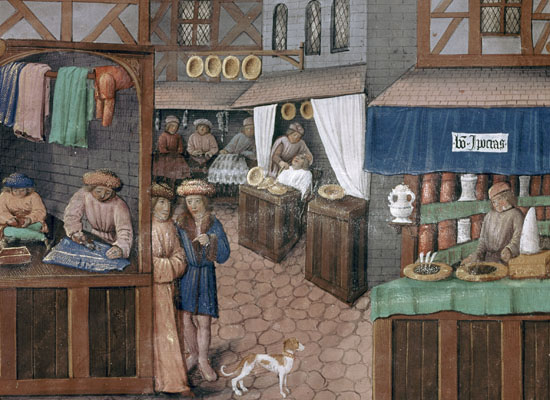Fr : version française / En: english version
Industrious street life
From the Middle Ages to the 18th century, craftsmen and traders made up the vast majority of the city's labor force. Workshops and stores were taken for households, which were themselves tiny. The workshop itself was on the ground floor, and gave onto the "display window", or shopfront, which jutted out into the street. Groups were formed along family lines, by location or by profession, each with its distinct apprentices, valets or salaried laborers and master craftsmen.
"Monnaie de singe"
Etienne Boileau, provost to the King in the 13th century, compiled regulations for professions in the "Book of Trades". The book states, for instance, that jugglers and animal keepers would pay their bridge tolls in kind:
"And if the performer has with him a monkey, he must perform at the toll gate, and in so doing will be exempt from paying the levy..."
This was the origin of the French expression "payer en monnaie de singe", meaning to pay with money that has no real value.
Every profession had its own rules, used to resolve disputes. All paid their dues to the "watch", the armed militia that watched over and protected the city.



























